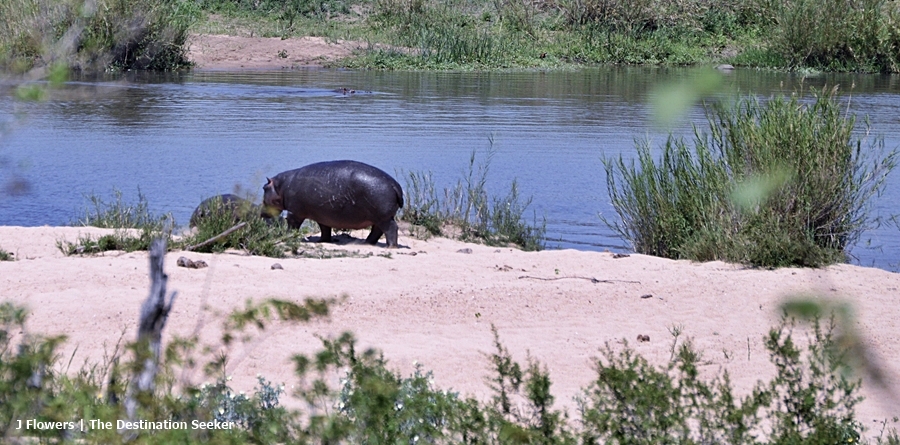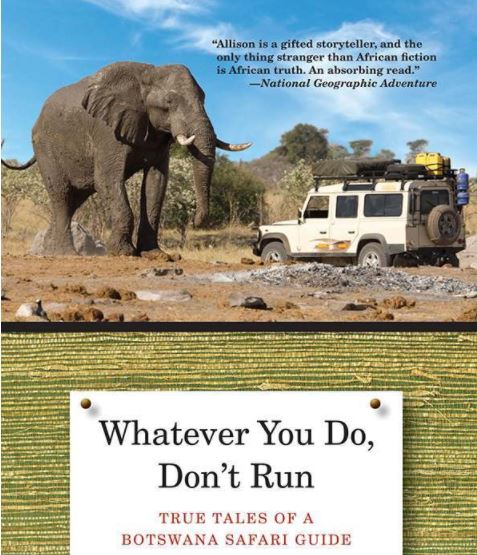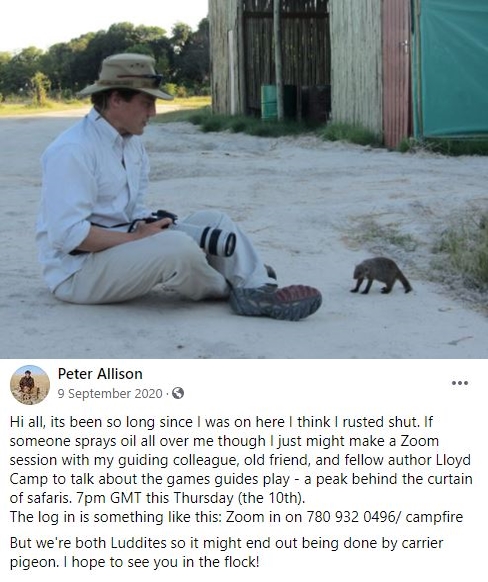I use affiliate links on my blog. When you click on my links, I may make a commission. Thank you!

African safari travelers come in many wallet sizes. But whether you can barely fit another item in your backpack, or fly into an exotic destination, one thing you should take along is a book. And not just any old book. Often, travelers burden themselves with a lot of camera equipment. Plus binoculars, animal identification books, or wildlife apps. Depending on your destination, the apps might end up useless as sometimes remote camps only have radio contact with the outside world. And most camps come equipped with all the books you need, except one.
African Safari must-have book fits all budgets
Depending on your budget you night camp or rent a vacation home in semi-wild Marloth Park near Kruger National Park. Or perhaps you jet off to a remote location with five-star service in Botswana. Maybe you enjoy younger company and overland through Zambia, Zimbabwe, South Africa, and Malawi. No matter where you stay, you’ll soon discover the rhythm of Africa. Early mornings bring productive game viewing. That usually comes before a nice breakfast before the heat of the day sets in.
On your African safari, you’ll discover that sensible animals mainly moved into deep shade during the heat of the day. In the late afternoon, everything perks up again. The midday heat’s your downtime as well. Enjoy whiling away the time at a pool, or retire to a tent or cool room and catch a nap. Or read a good book. And we recommend Don’t Run Whatever You Do by Peter Allison. Not for deep lectures on what trees antelope feed on, or the best place to spot a rare bird. But, for sheer entertainment, and a deep appreciation of stereotypes who visit the wilderness.
Stereotypes go beyond just people from foreign countries
As Peter explains, African safari guides often stereotype people from various countries. He talks about the stoic Germans and the loud Americans. And the camera-crazy Japanese. He even mentions the first-world teens who wistfully hope a lion jumps in the game viewing vehicle to relieve the boredom of living without an Xbox for a bit. However, he also mentions that stereotypes don’t all fit the individuals on safari. Plus, as a refreshing change, Peter talks about his adventures as a guide without the stereotypical gung-ho other guides often exhibit.
Actually, Peter Allison seems candid about his mistakes that he made as an African safari guide. And sometimes, the outcome seems hilarious. Plus, he takes readers behind the scenes into the real world of living in the not-so-luxurious staff accommodation out in the back. Funny, moving, and even emotional scenes emerge. Informative, a rolling anecdote about life in the wild keeps the reader engaged. And sometimes, you’ll laugh out loud. Especially if you love bird watching.

Don’t Run Whatever You Do author came from Australia
Surprisingly, Peter Allison grew up in Australia. His own travels through Africa sparked a desire for guiding African Safari travelers. And his first job came very low on the rung. Broke, and almost by accident, he received an opportunity to earn some cash working behind the bar in camp. Really, the guides got all the glory, or so he thought. And on the road in his new career, many game trackers, teachers, and kindly guides helped him learn. So, the day came when he took people out in their game-viewing vehicles.
Nowadays, he spends time in Africa, but also in Sydney, Australia. On the way, he wrote his must-have book. He also featured in National Geographic, Conde Nast Traveler, and on television programs such as Jack Hanna’s Animal Adventures. Plus, he runs blogs on social media. Amazon.com describes his book as “the lively adventures and biting wit of an African safari guide.” And they note, “as he serves the whims of his wealthy clients, he often…[stops] the impulse to run as far away from them as he can. “After all, sometimes his guests end up “more dangerous than a pride of lions.”

Light & humorous reading by an African Safari guide
Not without interesting animal behavior, the book also brings light relief and a lot of laughs. This type of book makes for a good read. But it also seems the type of book that you might take out your backpack or bag and read again. And again. However, remember, if you plan your African safari in the wilderness of the Okavango, try for a paperback copy. After all, your smartphone might not work in the deep wilderness.
Read it before you depart, or read it while on your vacation. Or read it twice. We recommend that any time might be a good time for this must-have book for your backpack.
Leave a Reply